-
 Bitcoin
Bitcoin $119600
0.72% -
 Ethereum
Ethereum $4175
-0.54% -
 XRP
XRP $3.207
0.44% -
 Tether USDt
Tether USDt $0.9997
-0.03% -
 BNB
BNB $795.8
-0.80% -
 Solana
Solana $178.4
-0.74% -
 USDC
USDC $0.9998
-0.01% -
 Dogecoin
Dogecoin $0.2273
-2.09% -
 TRON
TRON $0.3405
-0.28% -
 Cardano
Cardano $0.7864
-0.90% -
 Hyperliquid
Hyperliquid $44.43
1.35% -
 Chainlink
Chainlink $21.29
-0.96% -
 Stellar
Stellar $0.4411
0.55% -
 Sui
Sui $3.715
-2.92% -
 Bitcoin Cash
Bitcoin Cash $583.0
2.23% -
 Hedera
Hedera $0.2521
-2.12% -
 Ethena USDe
Ethena USDe $1.000
-0.05% -
 Avalanche
Avalanche $23.18
-1.96% -
 Litecoin
Litecoin $125.0
2.79% -
 Toncoin
Toncoin $3.311
-0.44% -
 UNUS SED LEO
UNUS SED LEO $8.996
-0.53% -
 Shiba Inu
Shiba Inu $0.00001305
-2.49% -
 Uniswap
Uniswap $10.60
-0.11% -
 Polkadot
Polkadot $3.910
-2.51% -
 Dai
Dai $0.9999
-0.03% -
 Cronos
Cronos $0.1640
2.00% -
 Ethena
Ethena $0.7932
4.93% -
 Bitget Token
Bitget Token $4.371
-1.10% -
 Monero
Monero $267.2
-1.09% -
 Pepe
Pepe $0.00001154
-3.46%
What risks will pose to using too high leverage multiples?
Amplified volatility and amplified profits make high-leverage multiples a high-risk, high-reward investment strategy best suited for experienced and sophisticated traders with robust risk management practices.
Feb 22, 2025 at 01:42 am
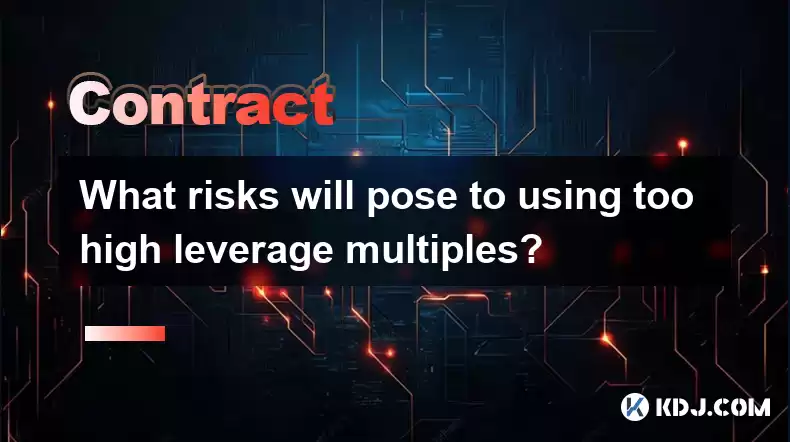
Key Points:
- High leverage multiples amplify both profits and losses, increasing volatility and risk exposure.
- Excessive leverage can lead to margin calls and forced liquidations, resulting in significant financial losses.
- Understanding the risks and limitations of high leverage is crucial to avoid catastrophic outcomes.
- Risk management strategies, such as risk-reward ratio determination and stop-loss orders, help mitigate the risks associated with high leverage.
- Alternative investment strategies with lower leverage ratios, such as dollar-cost averaging and value investing, can offer more stability and reduce overall risk.
Risks of Using Too High Leverage Multiples
- Amplified Volatility and Risk Exposure:
Using high leverage multiples essentially means borrowing funds to increase the potential returns on an investment. While this can amplify profits, it also significantly amplifies losses. A small adverse price movement can quickly result in significant financial setbacks. For instance, if an investor uses a 5:1 leverage ratio and the value of their investment falls by 20%, they will incur a 100% loss on their initial investment.
- Margin Calls and Forced Liquidations:
When using leverage to trade cryptocurrencies, traders borrow funds from an exchange to magnify their potential profits. However, if the market price moves against them, the exchange may issue a margin call, demanding the trader to deposit additional funds or face forced liquidation. This can lead to significant financial losses, as the trader may be forced to sell their assets at an unfavorable price.
- Emotional Trading and Overconfidence:
High leverage trading can easily lead to emotional trading and overconfidence. The rush of potentially large profits can cloud traders' judgment, causing them to make impulsive decisions that disregard risk management principles. This can result in extended losses and further amplify the consequences of excessive leverage.
- Risk Management Challenges:
Effectively managing the risks associated with high leverage is challenging. Traders need to carefully determine their risk-reward ratio, set realistic profit targets, and implement stop-loss orders to limit their potential losses. However, even with strict risk management measures in place, unexpected market events can still lead to catastrophic losses.
- Alternative Investment Strategies:
Given the inherent risks associated with high leverage trading, investors should consider alternative investment strategies that offer more stability and reduce overall risk. Dollar-cost averaging, a strategy of investing a fixed amount of money at regular intervals, can mitigate volatility and lower the risk of substantial losses. Value investing, focusing on undervalued assets with strong fundamentals, provides a more conservative approach with potentially lower returns but also decreased risk exposure.
FAQs:
Q: What are the primary risks of using high leverage multiples?
A: The primary risks include amplified volatility, margin calls and forced liquidations, emotional trading, and challenges in risk management.
Q: How can I mitigate the risks associated with high leverage trading?
A: Implementing a comprehensive risk management strategy, including determining the risk-reward ratio, setting profit targets, and placing stop-loss orders, can help reduce risk exposure.
Q: Are there alternative investment strategies with lower risk profiles?
A: Yes, alternative strategies such as dollar-cost averaging and value investing offer more stability and reduce overall risk compared to high leverage trading.
Q: What should I consider before using high leverage multiples?
A: It is crucial to thoroughly understand the risks and limitations of high leverage, have a solid risk management strategy in place, and allocate only a small portion of your portfolio to high leverage investments.
Q: Is high leverage trading suitable for all investors?
A: No, high leverage trading is only recommended for experienced and sophisticated traders who fully understand the associated risks and have robust risk management practices in place.
Disclaimer:info@kdj.com
The information provided is not trading advice. kdj.com does not assume any responsibility for any investments made based on the information provided in this article. Cryptocurrencies are highly volatile and it is highly recommended that you invest with caution after thorough research!
If you believe that the content used on this website infringes your copyright, please contact us immediately (info@kdj.com) and we will delete it promptly.
- DYDX Price Stays Afloat: Navigating Neutral Momentum with Technical Indicators
- 2025-08-11 20:50:12
- Superman Takes Flight: A Deep Dive into the Comic Program and Coin Medals
- 2025-08-11 20:30:12
- JasmyCoin's Bullish Momentum: Riding the Daily Gain Wave
- 2025-08-11 21:10:12
- Shiba Inu's Comeback Trail and the Meme Coin Mania: Can $SHIB Deliver a 12,000x Return?
- 2025-08-11 18:30:11
- Proof of Trust, Transparency, and User Safety: Keeping Crypto Real
- 2025-08-11 18:50:12
- Pudgy Penguins, Bitcoin Penguins, and the $22M Meme Coin Mania: A New York Perspective
- 2025-08-11 17:10:11
Related knowledge
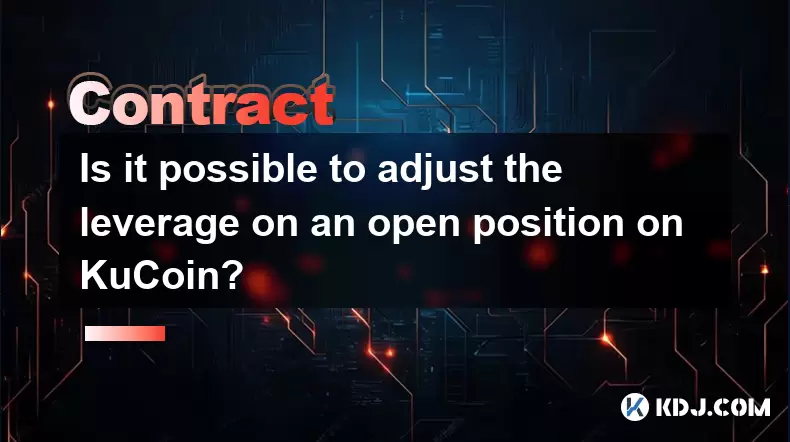
Is it possible to adjust the leverage on an open position on KuCoin?
Aug 09,2025 at 08:21pm
Understanding Leverage in KuCoin Futures TradingLeverage in KuCoin Futures allows traders to amplify their exposure to price movements by borrowing fu...

What cryptocurrencies are supported as collateral on KuCoin Futures?
Aug 11,2025 at 04:21am
Overview of KuCoin Futures and Collateral MechanismKuCoin Futures is a derivatives trading platform that allows users to trade perpetual and delivery ...
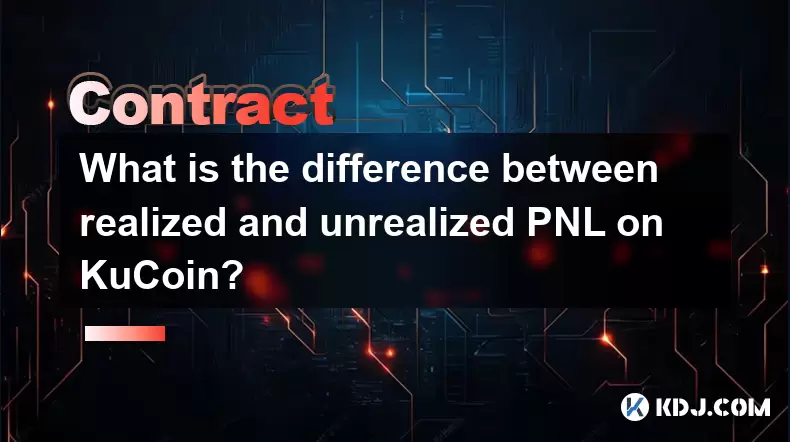
What is the difference between realized and unrealized PNL on KuCoin?
Aug 09,2025 at 01:49am
Understanding Realized and Unrealized PNL on KuCoinWhen trading on KuCoin, especially in futures and perpetual contracts, understanding the distinctio...

How does KuCoin Futures compare against Binance Futures in terms of features?
Aug 09,2025 at 03:22am
Trading Interface and User ExperienceThe trading interface is a critical component when comparing KuCoin Futures and Binance Futures, as it directly i...
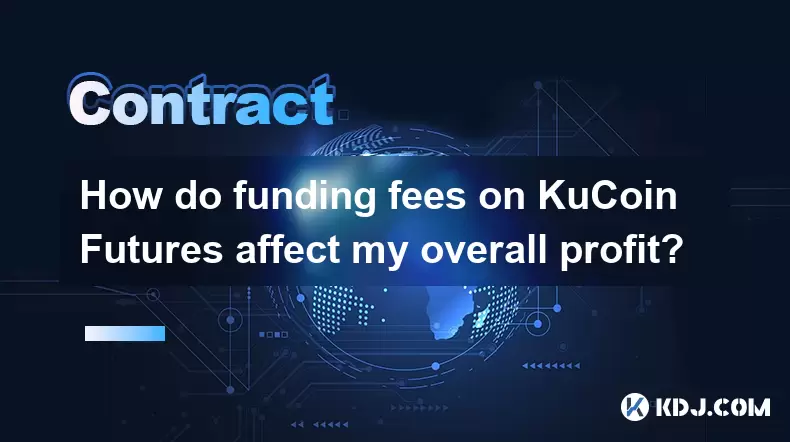
How do funding fees on KuCoin Futures affect my overall profit?
Aug 09,2025 at 08:22am
Understanding Funding Fees on KuCoin FuturesFunding fees on KuCoin Futures are periodic payments exchanged between long and short position holders to ...
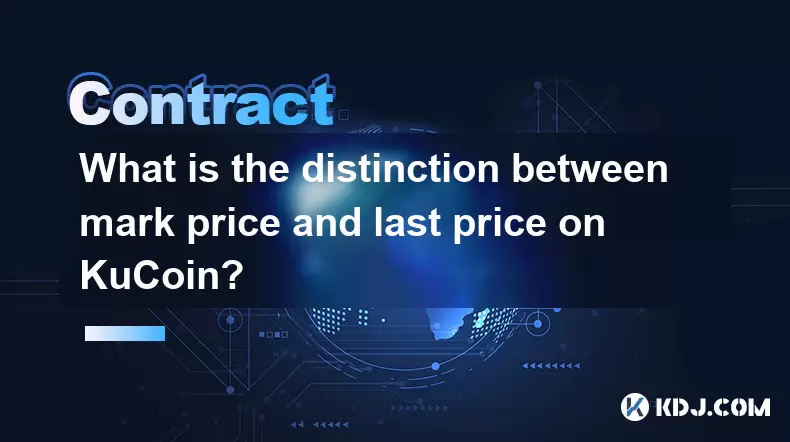
What is the distinction between mark price and last price on KuCoin?
Aug 08,2025 at 01:58pm
Understanding the Basics of Price in Cryptocurrency TradingIn cryptocurrency exchanges like KuCoin, two key price indicators frequently appear on trad...

Is it possible to adjust the leverage on an open position on KuCoin?
Aug 09,2025 at 08:21pm
Understanding Leverage in KuCoin Futures TradingLeverage in KuCoin Futures allows traders to amplify their exposure to price movements by borrowing fu...

What cryptocurrencies are supported as collateral on KuCoin Futures?
Aug 11,2025 at 04:21am
Overview of KuCoin Futures and Collateral MechanismKuCoin Futures is a derivatives trading platform that allows users to trade perpetual and delivery ...

What is the difference between realized and unrealized PNL on KuCoin?
Aug 09,2025 at 01:49am
Understanding Realized and Unrealized PNL on KuCoinWhen trading on KuCoin, especially in futures and perpetual contracts, understanding the distinctio...

How does KuCoin Futures compare against Binance Futures in terms of features?
Aug 09,2025 at 03:22am
Trading Interface and User ExperienceThe trading interface is a critical component when comparing KuCoin Futures and Binance Futures, as it directly i...

How do funding fees on KuCoin Futures affect my overall profit?
Aug 09,2025 at 08:22am
Understanding Funding Fees on KuCoin FuturesFunding fees on KuCoin Futures are periodic payments exchanged between long and short position holders to ...

What is the distinction between mark price and last price on KuCoin?
Aug 08,2025 at 01:58pm
Understanding the Basics of Price in Cryptocurrency TradingIn cryptocurrency exchanges like KuCoin, two key price indicators frequently appear on trad...
See all articles

























































































